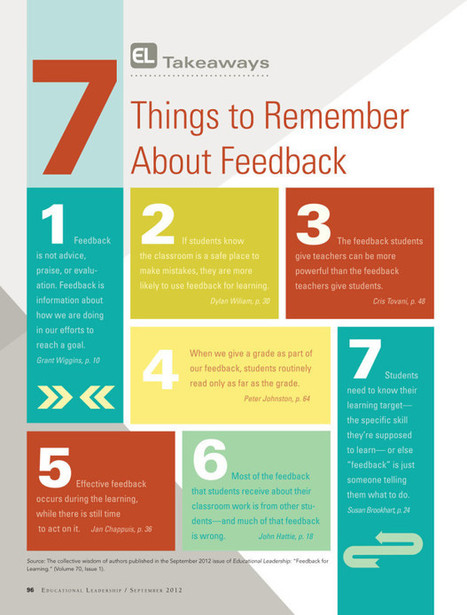Feedback is an inevitable part of teaching. Naturally, you’re in a position where you’re giving a whole lot of feedback, but you’re likely on the receiving end of feedback as well.
Get Started for FREE
Sign up with Facebook Sign up with X
I don't have a Facebook or a X account
 Your new post is loading... Your new post is loading...
 Your new post is loading... Your new post is loading...
|

Jeffrey Burk's curator insight,
September 30, 2013 9:29 AM
Interesting article on assessment strategies. 
Aunty Alice's curator insight,
October 6, 2013 8:40 PM
I have practiced a system that covers four of the 5 key strategies for many years starting at five years of age. I would not teach any other way. With this kind of assessment students after seven years of age can lead parent teacher conferences with ease and confidence. Had a dad in tears once who confessed it was the first time his son had talked meaningfully to him about his learning. Then I was in tears too.... 
Aunty Alice's curator insight,
November 21, 2013 8:03 PM
A good little diagram but it does not address the issue of how to do it..it requires modelling, first by the teacher, then slowly devolving the responsibility to the learner, and focus on one subject area at a time e.g. Literacy . In my experience it also requires set aside time with each student to assess together, recording what has been discussed so it is not forgotten. I am talking about elementary learners here.. |











